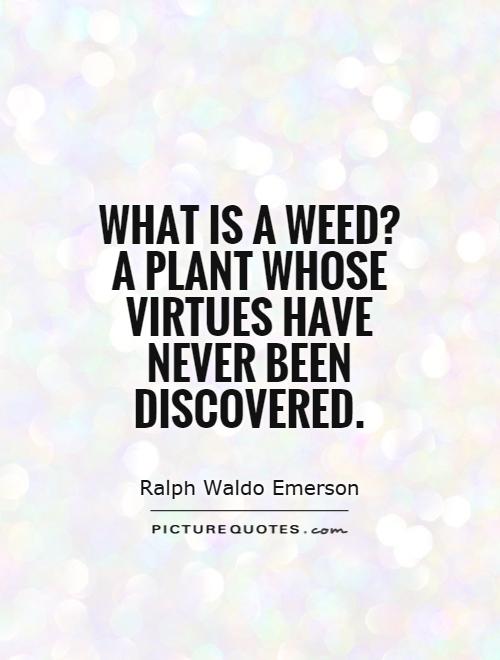What is a weed? A plant whose virtues have never been discovered

What is a weed? A plant whose virtues have never been discovered
Ralph Waldo Emerson, a renowned American essayist, lecturer, and poet, is often quoted for his profound insights on nature, self-reliance, and individualism. One of his famous quotes, "What is a weed? A plant whose virtues have never been discovered," encapsulates his belief in the inherent value and beauty of all living things, even those that are commonly dismissed as nuisances.Emerson's perspective on weeds challenges the conventional notion that these plants are simply unwanted intruders in our gardens and landscapes. Instead, he invites us to consider the possibility that weeds may possess hidden qualities and benefits that we have yet to recognize. By framing weeds as plants whose virtues remain undiscovered, Emerson encourages us to approach them with curiosity and open-mindedness, rather than disdain and contempt.
In a broader sense, Emerson's quote can be seen as a metaphor for the way we perceive and interact with the world around us. Just as we may overlook the potential value of a weed, so too do we often overlook the potential value of people, ideas, and experiences that are different from our own. Emerson's words remind us to approach the unfamiliar with a sense of wonder and humility, recognizing that there is always more to discover and appreciate in the world.
Emerson's philosophy of embracing the unknown and seeking out the hidden virtues in all things is a powerful reminder of the interconnectedness of all life. Just as weeds play a vital role in the ecosystem, providing food and shelter for insects and animals, so too do all living beings contribute to the intricate web of life on Earth. By recognizing and honoring the inherent worth of every plant, animal, and person, we can cultivate a deeper sense of respect and appreciation for the diversity and complexity of the natural world.












 Friendship Quotes
Friendship Quotes Love Quotes
Love Quotes Life Quotes
Life Quotes Funny Quotes
Funny Quotes Motivational Quotes
Motivational Quotes Inspirational Quotes
Inspirational Quotes